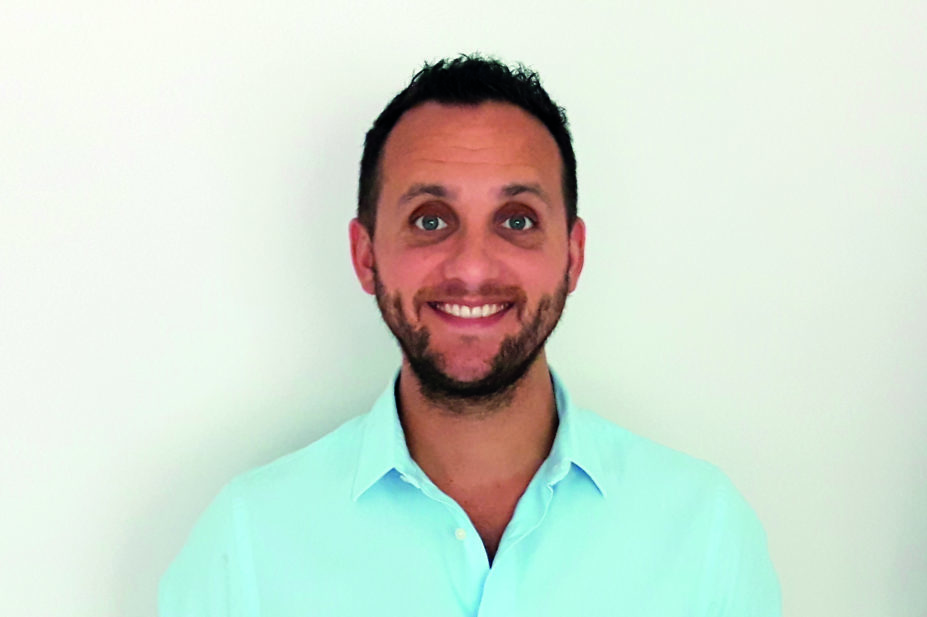
Courtesy of James Andrews
James Andrews is national quality pharmacist for Virgin Care, an NHS service provider.
What is your current role and how did you get there?
My role as national quality pharmacist is unique and encompasses the quality elements of medicines optimisation — safety, effectiveness and experience — across all services. These elements range from establishing a clinical governance framework, through to supporting services and colleagues to continually improve medicines optimisation, and measuring outcomes and activity against standards. Data capture and analysis is a key thread throughout.
In 2005, after a year working post-registration in a large retail multiple, I moved into primary care as a primary care trust ‘prescribing adviser’, which included the delivery of a domiciliary medication review service in Surrey. After two NHS restructures, I moved to Surrey Community Health in 2007 and assumed a patient-centred role delivering clinical medication reviews before moving to Virgin Care in 2012. Since then, I have transitioned from locality support to a national pharmacist role.
What is Virgin Care and what are the career opportunities for pharmacists currently?
Virgin Care is a healthcare organisation delivering more than 400 community services in England and overseeing many more delivered by partners, including those within the voluntary sector. The organisation has a strong focus on joining up services to work more closely and seamlessly together around patients, making the best use of technology to improve both the patient and clinician experience.
Virgin Care is an NHS service provider, so for service quality or prescribing, I work with NHS commissioners and chief pharmacists or for reviewing services that cross sectors or pathways, I link directly with relevant pharmacy teams in other NHS provider organisations. This also extends to local authorities.
Virgin Care currently employs seven pharmacists and is recruiting more. The chief pharmacist is supported by myself and the national development pharmacist who provides advice and supports the bid process and procurement of medicines. My role supports the quality medicines optimisation programme across Virgin Care.
In addition, part-time and full-time lead pharmacists provide medicines optimisation support to business units. The diversity of these services makes the role both interesting and fulfilling.
What activities are you currently focusing on during a typical day in your role?
In line with our five-year medicines optimisation strategy, I am currently redeveloping our annual medicines safety audit to become web-based, designing governance frameworks for service optimisation and working with senior clinical and governance leads on priority areas, such as prescribing quality.
I also provide support and expertise to the operational service teams. Recent examples include collaborating with a consultant paediatrician on a sialorrhoea guideline, authoring patient group directions for an urgent care service, mapping health visitor prescribers across clinical commissioning group (CCG) footprints and liaising with government agencies.
Who do you work with to maintain policies, supporting guidance and procedures, training units and competency frameworks? Are these policies and frameworks unique to Virgin Care?
I work closely with our chief pharmacist, clinical governance leads, clinical leads and other senior colleagues from across the country. I also have plenty of contact with our chief nurse, head of quality, data analysts and IT teams, regional lead pharmacists, and most importantly front-line colleagues.
The framework developed at Virgin Care provides guidance around utilising medicines optimisation principles and supporting colleagues to continuously improve their practice. Our Royal Pharmaceutical Society accredited training and competency framework ensure practitioners have the right skills, and the new ‘one pledge’ initiative demonstrates how medicines optimisation can be continuously improved.
What are community services and what benefits are there for pharmacists working in this area in terms of roles, careers and skill development?
This is an umbrella term for health services outside the acute setting. Generally, these are provided in patients’ homes or as near to home as possible. Example services I work with include community nursing and general practice, intermediate care, walk-in centres and urgent care services and speciality areas such as sexual health, respiratory and heart failure teams.
There is massive opportunity for pharmacist involvement within this sector, either in a support and advisory role or through provision of patient care as part of a multidisciplinary team.
What advice would you offer pharmacists looking to work in this area?
It’s an interesting time for community health services with the advent of new NHS models of care. Pharmacists should get involved! Especially if they have a passion for improving patient outcomes and medicines use, and if working across specialities and within a different working environment interests them.
What have been the outcomes of your annual organisation-wide medicines safety audit and how have these affected your role?
This is a fascinating piece of work — it has been a challenge to develop a tool to collect useable intelligence from hundreds of diverse services, but it has been invaluable.
Consequently, my role now involves developing and implementing organisation-wide initiatives for audit actions spanning numerous services and areas. I also work with our regional lead pharmacists to direct support to services or teams with specific needs.
What are the key challenges of working within an independent sector company delivering NHS services?
The challenges we face are much the same as any other NHS provider. We are delivering NHS services on behalf of local NHS commissioners on an NHS budget. Retail pharmacies, GP practices and dentists have always relied heavily on private sector contractors to deliver services.
Everyone, including front-line clinicians and administrators, are encouraged to share ideas for service improvement, which is exciting and empowering.


